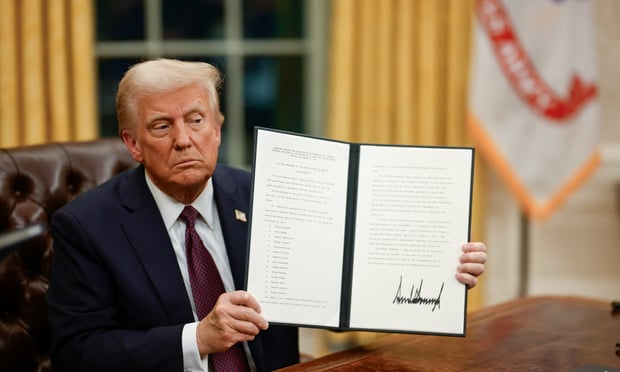Insurance industry trade groups are urging Congress to move quickly for a compromise that reconciles rival measures to extend the federal terrorism insurance backstop that were approved in House and Senate committees yesterday.
Meanwhile, the Consumer Federation of America voiced moderate support of the Senate bill, but harshly criticized the House measure as one that would put an additional burden on taxpayers and consumers.
J. Robert Hunter, director of insurance for the CFA, was particularly critical of language in the House legislation that pre-empted the current ability of states to regulate terrorism insurance rates and forms.
His criticism was voiced even before insurance industry lobbyists were able to persuade the House Financial Services Committee to insert language during the markup of the bill that if enacted by Congress would significantly streamline surplus lines laws.
Leigh Ann Pusey, senior vice president for government affairs of the American Insurance Association, said the trade group and its members "will continue working with members of Congress and the administration in that same spirit of cooperation to get workable legislation to the president's desk in the next few weeks."
William Stiglitz, president of the Independent Insurance Agents and Brokers of America, "applauded" the committees "for producing thoughtful and needed legislation."
National Association of Professional Insurance Agents executive vice president & CEO Len Brevik said that PIA's message to Congress is, "Just renew it."
Ernie Csiszar, Property Casualty Insurers Association of America (PCI) president and chief executive officer, said he applauded the work of the committee chairmen in the House and Senate for their work on the bill and said PCI "looks forward to working with a conference committee to ensure that President Bush has the opportunity to sign workable legislation into law by December 31."
Ken Crerar, president of the Council of Insurance Agents and Brokers, said he was pleased that "very significant action occurred today in both the House and Senate, which we hope will result in the extension of the federal backstop for terrorism insurance."
"We are especially pleased," he added, "with the action taken by the House Financial Services Committee. In addition to passing a bill that we believe provides a good extension of the program with a pathway for a "permanent" pooling fix, the House committee included market reforms advocated by The Council that would significantly streamline surplus lines laws–a high CIAB priority for many years."
The provisions added during the markup referred to by Mr. Crerar would allow sophisticated commercial purchasers of commercial coverage, including terrorism, to bypass state declination rules.
Additionally, all other surplus lines policyholders (who buy insurance with terror cover on a multistate basis) would only have to abide by the declination rules in the state in which the insurance was placed.
David Winston, National Association of Mutual Insurance Companies senior vice president for federal affairs, said, "NAMIC supports S. 467, the Terrorism Risk Insurance Extension Act of 2005, as reported by the Senate Banking Committee and urges its swift passage on the Senate floor."
He thanked senators supporting extension "for their considerable efforts to move this critically important legislation in a meaningful way prior to the expiration of the act at the end of this year."
Mr. Winston also applauded the efforts of the House Financial Services Committee in reporting its bill out."
Eric J. Oxfeld, president of UWC–Strategic Services on Unemployment and Workers' Compensation and the National Foundation for Unemployment Compensation and Workers' Compensation–added, "For the sake of America's workers and employers, UWC urges the full House and Senate to act quickly to assure that a workable terrorism risk insurance backstop remains in place after the end of 2005."
Mr. Hunter called the differences between the House and Senate bills "profound." He said that "we applaud Sen. Richard Shelby, R-Ala., chairman of the Senate Banking Committee, for his efforts to sharply increase insurer cost sharing under the current program.
"The Senate bill would immediately increase the share of losses insurers must pay, regardless of the size of the terrorist attack. It would also reduce the lines of insurance that will be covered under TRIA and move toward a definite end of this temporary program after 2007."
But the House bill, Mr. Hunter said, "would harm both taxpayers and consumers. It does not reduce taxpayer exposure to terrorism losses as much as the Senate bill and appears to actually increase taxpayer payments for larger terrorist attacks."
Want to continue reading?
Become a Free PropertyCasualty360 Digital Reader
Your access to unlimited PropertyCasualty360 content isn’t changing.
Once you are an ALM digital member, you’ll receive:
- Breaking insurance news and analysis, on-site and via our newsletters and custom alerts
- Weekly Insurance Speak podcast featuring exclusive interviews with industry leaders
- Educational webcasts, white papers, and ebooks from industry thought leaders
- Critical converage of the employee benefits and financial advisory markets on our other ALM sites, BenefitsPRO and ThinkAdvisor
Already have an account? Sign In Now
© 2025 ALM Global, LLC, All Rights Reserved. Request academic re-use from www.copyright.com. All other uses, submit a request to [email protected]. For more information visit Asset & Logo Licensing.








